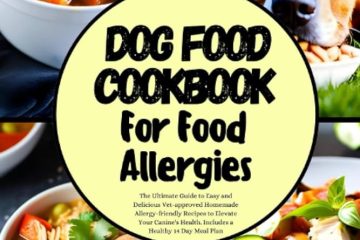If your Siberian Husky puppy is experiencing food vomit and eating diarrhea issues, it is best to consult a veterinarian for proper diagnosis and treatment.

Credit: www.usatoday.com
Causes Of Food Vomiting And Diarrhea
If your Siberian Husky puppy is experiencing food vomiting and diarrhea issues, it is important to understand the potential causes. These issues can be caused by various factors such as food allergies, dietary changes, or gastrointestinal infections. It is advisable to consult with a veterinarian to determine the underlying cause and provide appropriate treatment.
When it comes to Siberian Husky puppies, food vomiting and diarrhea can be quite common. These issues can be caused by a variety of factors, including food intolerance or sensitivity, inflammatory bowel disease, and other common causes. Understanding the underlying causes can help in managing and treating these digestive issues effectively.
Food Intolerance Or Sensitivity
Food intolerance or sensitivity occurs when a puppy’s digestive system has difficulty processing certain ingredients in their food. This can lead to vomiting and diarrhea as the body tries to get rid of the offending substances. Some common food allergens in dogs include wheat, soy, corn, and dairy products. If you suspect that your Siberian Husky puppy has a food intolerance or sensitivity, it is important to identify and eliminate the problematic ingredient from their diet.
Inflammatory Bowel Disease
Inflammatory bowel disease (IBD) is an immune system disorder that is commonly seen in Huskies. It occurs when the intestinal lining becomes inflamed and thickened, causing difficulties in nutrient absorption. Symptoms of IBD in puppies may include chronic diarrhea, vomiting, weight loss, and decreased appetite. If your puppy shows these signs, it is important to consult a veterinarian for proper diagnosis and treatment.
Other Common Causes
In addition to food intolerance and inflammatory bowel disease, there are other common causes of food vomiting and diarrhea in Husky puppies. These can include dietary changes, dietary indiscretion (such as eating garbage or spoiled food), bacterial or viral infections, parasites, and stress. It is crucial to identify the specific cause to ensure appropriate treatment and management.
- Food intolerance or sensitivity can cause vomiting and diarrhea in Husky puppies.
- Inflammatory bowel disease is a common immune system disorder that can lead to digestive issues.
- Other common causes include dietary changes, dietary indiscretion, infections, parasites, and stress.
If your Siberian Husky puppy experiences persistent food vomiting and diarrhea, it is recommended to consult a veterinarian for a proper diagnosis and to develop an appropriate treatment plan. Remember, early intervention and proper management are crucial in ensuring the health and well-being of your furry friend.
Solutions For Food Vomiting And Diarrhea
If you’re dealing with food vomiting and diarrhea issues in your Siberian Husky puppy, we have solutions to help. Keep your furry friend hydrated, try a bland diet, introduce fiber-rich foods, and consider using natural remedies like probiotics and herbs to support their digestion.
Feeding A Bland Diet
If your Siberian Husky puppy is experiencing food vomiting and diarrhea, one of the solutions is to feed them a bland diet. A bland diet consists of easily digestible foods that are gentle on the stomach.
This can include:
- Boiled chicken breast without skin or bones
- Boiled rice
- Boiled sweet potatoes
A bland diet helps soothe the digestive system and gives it time to recover from any irritation or inflammation. It is important to gradually reintroduce their regular food once their symptoms have improved.
Introducing Fiber-rich Foods
Another solution for food vomiting and diarrhea in Siberian Husky puppies is to introduce fiber-rich foods into their diet. Fiber helps regulate the digestive system and can help firm up loose stools.
Some fiber-rich foods you can add to their diet include:
- Pumpkin puree (not pumpkin pie filling)
- Steamed vegetables such as carrots or green beans
- Psyllium husk powder
These fiber-rich foods can help improve your puppy’s digestion and reduce the frequency of vomiting and diarrhea episodes.
Using Probiotics And Natural Dewormers
Probiotics are beneficial bacteria that support a healthy gut and aid in digestion. Adding probiotics to your Siberian Husky puppy’s diet can help restore the balance of good bacteria in their digestive system and alleviate digestive issues.
You can introduce probiotics through:
- Probiotic supplements specifically formulated for dogs
- Plain yogurt with live cultures
- Fermented vegetables like sauerkraut
In addition to probiotics, natural dewormers can also help address diarrhea issues caused by parasites. Consult with your veterinarian for the appropriate natural dewormer for your puppy.
By feeding a bland diet, introducing fiber-rich foods, and using probiotics and natural dewormers, you can help alleviate food vomiting and diarrhea in your Siberian Husky puppy. Remember to consult with your veterinarian for proper guidance on your puppy’s dietary needs.
Best Foods For Dogs With Diarrhea And Vomiting
Discover the best foods to alleviate diarrhea and vomiting in Siberian Husky puppies, providing the necessary nutrients without causing digestive issues.
Cooked Plain White Meat
Cooking plain white meat, such as chicken or turkey, for a sick dog can be a good option as it is easily digestible and low in fat. The meat should be cooked thoroughly and without any seasoning or additives that may upset the stomach. Feeding small, frequent meals of cooked white meat can help provide essential nutrients while minimizing stress on the digestive system. Remember to remove any bones or skins that may pose a choking hazard or cause intestinal blockage.
Chicken With White Rice
Chicken with white rice is a classic meal for dogs with diarrhea and vomiting. The combination of lean protein from the chicken and easily digestible carbohydrates from the white rice can help soothe the stomach and firm up loose stools. Cook the chicken thoroughly and shred it into small pieces before mixing it with cooked white rice. This bland and comforting meal can provide nourishment while allowing the digestive system to recover.
Boiled Sweet Potato
Boiled sweet potato is another excellent option for dogs with digestive issues. Sweet potatoes are rich in fiber, which can help regulate bowel movements and firm up loose stools. Boil the sweet potato until it is soft and easily mashable. Mash it into a puree or cut it into small, manageable pieces for your dog to consume. Sweet potatoes are not only nutritious but also delicious for dogs, making them an ideal choice for a meal or snack during recovery.
In addition to these specific food options, there are some general guidelines to follow when feeding a dog with diarrhea and vomiting:
- Feed small, frequent meals to avoid overwhelming the digestive system. This allows the stomach to properly process and absorb nutrients.
- Avoid feeding fatty or greasy foods, as they can further irritate the stomach and exacerbate symptoms.
- Ensure your dog has access to plenty of fresh water to stay hydrated. Dehydration can worsen diarrhea and vomiting.
- Monitor your dog’s condition closely and consult a veterinarian if symptoms persist or worsen.
Remember, every dog is unique, and what works for one may not work for another. It’s important to observe your dog’s response to different foods and adjust their diet accordingly. When in doubt, it’s always best to consult with a professional veterinarian for personalized advice and guidance on managing your dog’s diarrhea and vomiting issues.
When To Seek Veterinary Help
Seek Veterinary Help for your Siberian Husky puppy experiencing food vomit, eating, and diarrhea issues. A professional veterinarian can provide the necessary guidance and treatment to address these digestive problems and ensure the health and well-being of your furry companion.
Remember, it is always better to consult a veterinarian to diagnose and treat any underlying health concerns.
If your Siberian Husky puppy is experiencing food vomit, eating issues, or diarrhea, it’s important to monitor the symptoms closely. In most cases, these symptoms resolve on their own within a day or two. However, there are certain situations where veterinary assistance should be sought.
Duration Of Symptoms
One important factor to consider is the duration of the symptoms. If your puppy has been vomiting or experiencing loose stools for more than 24 hours, it’s a cause for concern. Prolonged symptoms may indicate an underlying health issue that requires veterinary attention.
Persistent Vomiting Or Diarrhea
If your Siberian Husky puppy is experiencing persistent vomiting or diarrhea, it’s crucial to seek veterinary help. Persistent vomiting or diarrhea can lead to dehydration and nutrient deficiencies, which can be dangerous for a growing puppy. A veterinarian can provide the necessary treatment and support to help your puppy recover.
Other Concerning Symptoms To Watch For
Aside from duration and persistence of symptoms, there are other symptoms that may indicate a need for veterinary assistance. These symptoms include:
- Blood in vomit or diarrhea
- Severe abdominal pain or bloating
- Lethargy or excessive tiredness
- Lack of appetite
- Weight loss
If you observe any of these symptoms in your Siberian Husky puppy, it’s important to consult a veterinarian as soon as possible. These symptoms may be indicative of a more serious underlying condition that requires immediate medical attention.
Remember, as a responsible pet owner, it’s crucial to prioritize your puppy’s health and well-being. Seeking veterinary help when necessary can help ensure your puppy receives the appropriate treatment and care.
Preventing Food Vomiting And Diarrhea In Siberian Huskies
When it comes to preventing food vomiting and diarrhea in Siberian Huskies, there are some important measures you can take. By following these guidelines, you can ensure that your furry friend maintains a healthy digestive system and avoids any discomfort or health issues.
Slowly Introduce New Foods
One of the key steps in preventing food vomiting and diarrhea in Siberian Huskies is to slowly introduce new foods into their diet. Rapid changes in a dog’s diet can lead to digestive upset, so it’s crucial to gradually incorporate any changes. Start by mixing a small portion of the new food with their current diet and gradually increase the amount over a week or two. This will allow their digestive system to adapt and minimize the chances of any adverse reactions.
Maintain A Consistent Diet
Siberian Huskies thrive on a consistent and balanced diet. It’s important to provide them with high-quality food that meets their nutritional needs. Stick to a regular feeding schedule and avoid sudden changes in the brand or type of food. Consistency helps their digestive system to function smoothly and reduces the likelihood of any food-related issues such as vomiting or diarrhea.
Avoid Feeding Human Food
While it may be tempting to share food from your plate with your Siberian Husky, it’s important to avoid feeding them human food. Many foods that are safe for humans can be harmful to dogs, causing gastrointestinal issues and other health problems. It’s best to stick to a diet specifically formulated for dogs and consult with a veterinarian for suitable treats or supplements, if needed.
In conclusion, preventing food vomiting and diarrhea in Siberian Huskies is a matter of gradually introducing new foods, maintaining a consistent diet, and avoiding feeding them human food. By following these guidelines, you can help your furry friend maintain a healthy digestive system and ensure their overall well-being. Remember to consult with a veterinarian for any specific dietary recommendations or concerns regarding your Siberian Husky’s health.

Credit: www.amazon.com

Credit: www.amazon.com
Frequently Asked Questions On Need Help W Siberian Husky Puppy Food Vomit Eating Diarrhea Issues
Why Is My Siberian Husky Throwing Up And Diarrhea?
A Siberian Husky may experience vomiting and diarrhea due to various reasons such as dietary issues, upset stomach, or digestive disorders. To alleviate the symptoms, you can keep the dog hydrated, fast them for a while, provide a bland diet, feed fiber-rich foods, introduce electrolytes, use herbs or probiotics, and consider natural dewormers.
It’s important to address these issues promptly to ensure your dog’s well-being.
How Do You Fix A Husky’s Upset Stomach?
To fix a Husky’s upset stomach: 1. Keep your dog hydrated. 2. Fast your dog. 3. Give them a bland diet. 4. Feed fiber-rich foods to support digestion. 5. Introduce electrolytes and probiotics. 6. Use natural dewormers if needed. 7. Avoid switching their food often.
Are Huskies Prone To Digestive Issues?
Huskies are prone to digestive issues like inflammatory bowel disease, where the intestinal lining becomes thickened, affecting nutrient absorption. To help with upset stomachs, keep them hydrated, fast for a bit, and feed them a bland diet with fiber-rich foods.
Probiotics and natural dewormers can also support their gut.
Conclusion
If your Siberian Husky is experiencing issues with food vomiting and eating diarrhea, it is important to address these problems promptly. Providing a bland diet, keeping your pup hydrated, and incorporating fiber-rich foods can help support digestion. Introducing probiotics and natural dewormers may also aid in resolving these issues.
Additionally, it is crucial to avoid constantly switching your dog’s food, as this can exacerbate digestive problems. By following these tips, you can help your Husky find relief and improve their overall health.



